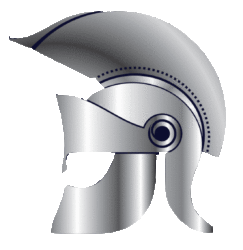
IFRS was established in order to have a common accounting language, so business and accounts can be understood from company to company and country to country. In 2006, the FASB began working with the International Accounting Standards Board (IASB) to reduce or eliminate the differences between U.S. GAAP and the International Financial Reporting Standards (IFRS), known as the IASB-FASB convergence project.[15] The scope of the overall IASB-FASB convergence project has evolved over time. The IASB and FASB issued converged standards for accounting topics including Business combinations (2008), Consolidation (2011), Fair value measurement (2011), and Revenue recognition (2014). As of 2022, the convergence project is coming to an end and no new projects will be added to the agenda. The Codification is effective for interim and annual periods ending after September 15, 2009.
Realizing the need to reform the APB, leaders in the accounting profession appointed a Study Group on the Establishment of Accounting Principles (commonly known as the Wheat Committee for its chairman Francis Wheat). This group determined that the APB must be dissolved and a new standard-setting structure created. This material has been prepared for general informational purposes only and is not intended to be relied upon as accounting, tax, or other professional advice.
What are some critiques of accounting principles?
These regulations ensure that investors can easily understand the financial health of each company, and easily compare companies before making investment decisions. For example, GAAP stipulates how to file income statements, what financial periods to include, and how to report cash flow. The IASB and the FASB have been working on the convergence of IFRS and GAAP since 2002. Due to the progress achieved in this partnership, the SEC, in 2007, removed the requirement for non-U.S.
Publicly traded domestic companies are required to follow GAAP guidelines, but private companies can choose which financial standard to follow. Some companies in the U.S.—particularly those that are traded internationally or see a lot of international business—may use dual reporting (i.e., both methods) when preparing financial statements. is gaap used internationally It is also possible, though time-consuming, to convert GAAP documents and processes to meet IFRS standards. Whether or not the two systems will ever truly integrate or converge remains to be seen, though efforts were made by the U.S. Securities and Exchange Commission from 2010 to 2012 to come up with an official plan for convergence.
IFRS vs. U.S. GAAP: An Overview
For example, banks operate using different accounting and financial reporting methods than those used by retail businesses. They also draw on established best practices governing cost, disclosure, matching, revenue recognition, professional judgment, and conservatism. Generally accepted accounting principles, or GAAP, are standards that encompass the details, complexities, and legalities of business and corporate accounting. The Financial Accounting Standards Board (FASB) uses GAAP as the foundation for its comprehensive set of approved accounting methods and practices.

Companies sometimes do that when they believe the GAAP rules are not flexible enough to capture certain nuances about their operations. In such situations, they might provide specially designed non-GAAP metrics, in addition to the other disclosures required under GAAP. Investors should be skeptical about non-GAAP measures, however, as they can sometimes be used in a misleading manner. GAAP is also used in the preparation of financial statements by government entities. According to the Financial Accounting Foundation, all 50 states adhere to GAAP and many require that local entities, such as counties, cities, towns, and school districts, do so as well. GAAP is considered to be rules-based, meaning rules are made for specific cases and do not necessarily represent a larger principle.
History of GAAP and IFRS
Companies registered in the U.S. to reconcile their financial reports with GAAP if their accounts already complied with IFRS. Companies trading on U.S. exchanges had to provide GAAP-compliant financial statements. If a financial statement https://www.bookstime.com/articles/form-941 is not prepared using GAAP, investors should be cautious. Without GAAP, comparing financial statements of different companies would be extremely difficult, even within the same industry, making an apples-to-apples comparison hard.


